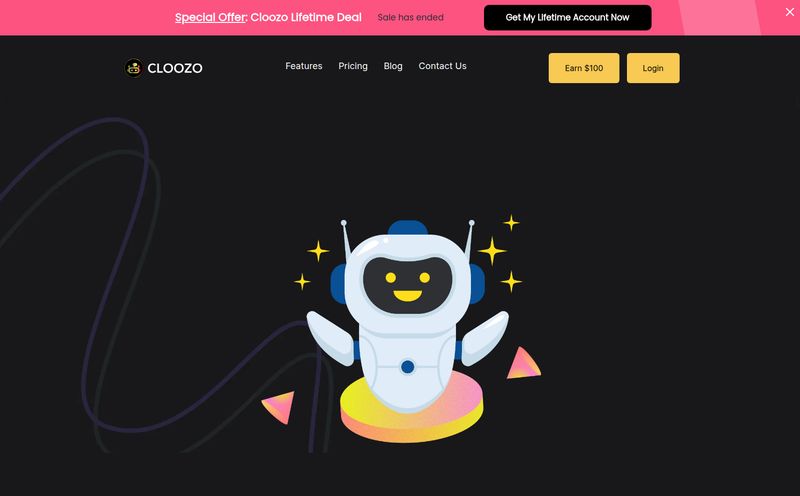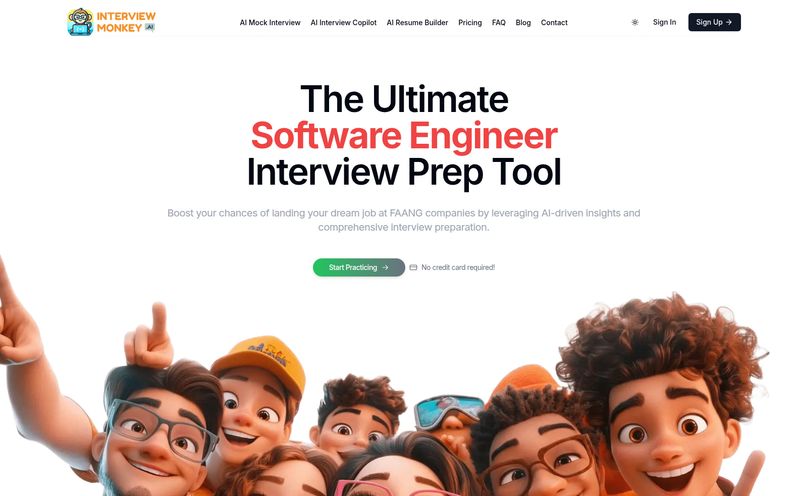The internet is noisy. Really noisy. Trying to find a straight, simple answer to a niche question these days can feel like screaming into a hurricane. You wade through forums filled with decade-old advice, social media feeds that are 90% ads, and Q&A sites that have... well, lost their way. I'm looking at you, Quora.
It's a cycle I've seen a dozen times in my years in SEO and digital communities. A platform starts with a pure mission: connect people with knowledge. It’s beautiful. Then it gets popular, the venture capital flows in, and suddenly it's a game of driving traffic at all costs. The quality dips, the bots move in, and the real experts just get tired and leave.
So when a new platform like QnAPe pops up on my radar, my default setting is cynical optimism. I’m hopeful, but I’ve been burned before. The landing page is... sparse. Almost shockingly simple. But there was something intriguing there. A little flag in the corner that said, "Made in Bharat 🇮🇳". Okay, now I'm listening.
What Exactly is QnAPe? The 10,000-Foot View
At its core, QnAPe is exactly what it sounds like: a Question and Answer platform. The mission is to connect people who have questions with other people who have unique insights and quality answers. No frills, no gimmicks. It's built to facilitate learning and knowledge sharing. Simple as that.
When you first land on it, it feels like an empty public library that's just been built. The shelves are there, the chairs are waiting, the lighting is good. But it needs people to come in and fill it with books and conversations. That big "Create" button is a dead giveaway—it’s a platform that puts the power, and the responsibility, squarely on the user.

Visit QnAPe
This isn’t a place that’s going to feed you content algorithmically from day one. It’s a blank slate. And in a world of digital clutter, that might just be its biggest strength.
First Impressions and Core Features
The user interface is minimalist to the extreme. We're talking acres of white space. For a user experience designer, it might be a dream or a nightmare, depending on your philosophy. For me, a guy who stares at chaotic dashboards all day, it's a breath of fresh air. It’s clear they’re starting with the fundamentals: questions, answers, and people.
But there’s a bit more under the hood than just a simple forum.
Beyond Just Questions and Answers
In my book, the Groups feature is where the real magic could happen. This is what separates it from just being a clone of early-days Yahoo Answers (remember that glorious mess?). The ability to create focused groups for specific topics is huge. Think of it as having the potential for the niche focus of a Subreddit but without the... Reddit-ness of it all.
Imagine a private group for a small mastermind of SEO professionals, or a public one for sourdough enthusiasts in Bangalore. This is how you build a real community, not just a transient place to drop a question and run. It fosters a sense of belonging that is desperately missing from the bigger platforms.
User Profiles and Building Authority
Naturally, it has user profiles. This is standard fare, but critical. For a knowledge-sharing platform to work, you need to know who to trust. A well-answered question from someone with a detailed profile and a history of quality contributions means a thousand times more than an anonymous comment. Its' a simple concept, but one that many platforms fail to properly incentivize.
The Good Stuff: Why QnAPe Might Actually Work
I’m rooting for the underdog here. The idea of a community-led, knowledge-first platform is something the internet desperately needs. QnAPe has a shot because it seems to be tapping into a real need. It provides a space for genuine connection through shared curiosity. You get to hear from people with completely different backgrounds, which is how real learning happens. Not by reading a perfectly polished, SEO-optimized article (ironic, I know), but by getting a raw, real-world answer from someone who's been there.
Just last week I was trying to figure out a weird Google Analytics 4 data discrepancy. I spent an hour on Google, getting conflicting blog posts and a Stack Overflow thread from 2019 that was only vaguely related. A platform like QnAPe, if it attracts the right crowd, could be the perfect place for that kind of specific, practical question.
The Hard Truths and Hurdles for QnAPe
Okay, let's get real. My optimism is tempered with a heavy dose of pragmatism. Building a platform like this is brutally difficult. QnAPe faces a few massive challenges that will make or break it.
First is the classic chicken-and-egg problem. You can’t attract users without quality content and experts. But you can't get experts to stick around if there are no users asking interesting questions. It's a momentum game, and getting that flywheel spinning is the hardest part. It requires patience and a solid strategy to seed the initial communities.
Then there's the moderation minefield. Some might argue that open platforms are the purest form of discussion, but I've seen firsthand how quickly they can be overrun by spam, misinformation, and low-quality content. A platform is only as good as its janitors. How QnAPe plans to handle moderation at scale without an army of volunteers or expensive AI is a big question mark for me. It relies entirely on user participation, which means it’s only as good as the community makes it. That’s both its biggest appeal and its greatest vulnerability.
Who is QnAPe For? Finding Your Tribe
So, who should give this a shot? I see a few key groups.
- Niche Hobbyists & Experts: If you're tired of the noise on Facebook Groups, this could be a focused alternative to build a real community around your passion.
- Students & Lifelong Learners: A great place to ask specific questions that a textbook or a lecture might not cover.
- Professionals & Consultants: A potential space to build authority by providing high-value answers in your field, without the pressure of content creation for a blog or LinkedIn.
It's not trying to be Stack Overflow for coders or Reddit for memes. It feels like it wants to occupy a middle ground—more structured than a forum, but more personal and community-focused than Quora has become.
Let's Talk Money: The QnAPe Pricing Question
Here’s the million-dollar question: what does it cost? Right now, nothing. There's no pricing page, no subscription model, no hint of a paywall. It's free to use. This is smart for a platform in its growth phase. They need to focus on building the community first, not monetizing it.
My guess? They'll likely introduce a business model down the line. Maybe premium features for groups, an ad-based model, or enterprise-level tools for internal company knowledge bases. For now, though, the barrier to entry is zero, which is exactly what it needs to be.
My Final Take on QnAPe
QnAPe is a promising newcomer in a field dominated by tired giants. It's a blank canvas with a solid foundation. Its success will depend entirely on its ability to attract a core group of passionate users who believe in the mission of sharing knowledge. It's a long road ahead, filled with challenges that have sunk countless other platforms.
But I'm still optimistic. The minimalist approach and the focus on community-building through groups are the right moves. Maybe, just maybe, this is the start of something special. Is it worth a look? I think so. After all, the next great online community has to start with a single, simple question.
Your QnAPe Questions Answered
Is QnAPe free to use?
Yes, as of now, QnAPe is completely free to use. There is no pricing information available on their site, which is typical for a new platform focused on user growth.
How is QnAPe different from Quora?
While both are Q&A platforms, QnAPe seems to have a stronger emphasis on focused community building through its 'Groups' feature. Its current minimalist, ad-free interface also provides a very different user experience compared to the more monetized and algorithm-heavy feed of modern Quora.
Can I create a private group on QnAPe?
The platform features group creation and management. While specifics on public vs. private settings aren't detailed, this is a standard feature for such tools, so it's highly likely that options for private or invite-only groups are available or on the roadmap to support focused discussions.
What kind of topics are discussed on QnAPe?
The platform is topic-agnostic, meaning you can ask questions or create groups about anything from technology and business to hobbies like cooking or gardening. The content will be driven entirely by what its users are interested in.
Who is behind the QnAPe platform?
The platform's website proudly states it is "Made in Bharat 🇮🇳," indicating it's an Indian-developed alternative in the global social knowledge-sharing space.
Reference and Sources
- Forbes: 11 Expert Tips For Building A Strong Online Community
- Inc42: The Rise of 'Made in India' Apps
- QnAPe Official Website (URL would be here)



